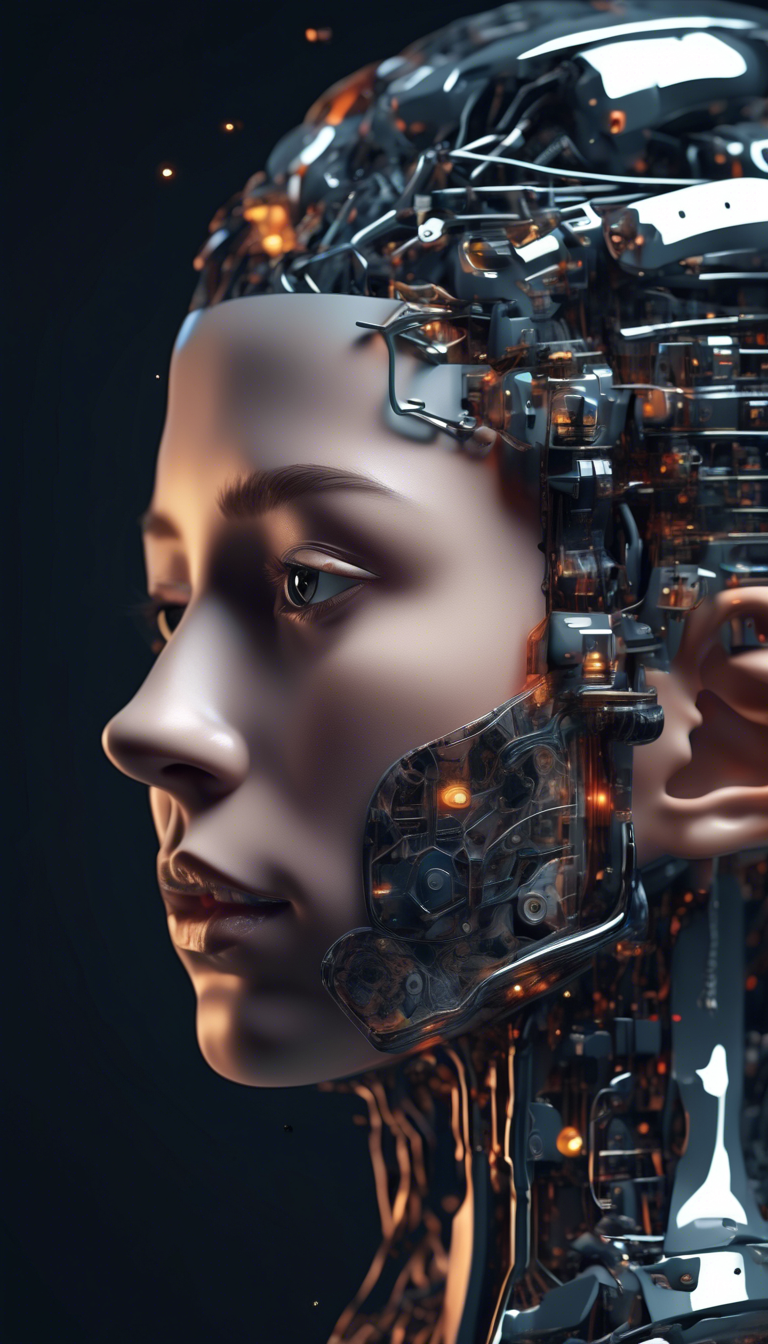The Role of AI Website Generators in Streamlining Web Development Processes
As businesses grow, the demand for an online presence surges. A website acts as a digital storefront, showcasing products or services to an expanding audience. However, the web development process has often been cumbersome and time-consuming. Enter AI website generators, tools designed to simplify and accelerate website creation. These platforms not only boost efficiency but also empower users to launch professional sites without extensive technical knowledge.
How AI Website Generators Work
AI website generators leverage machine learning algorithms and natural language processing to create websites. By analyzing user input, such as business type, aesthetics preferences, and desired functionality, these tools generate tailored website designs. Most platforms allow users to:
- Choose Templates: Users can select from a variety of pre-designed templates that align with their brand identity.
- Customize Content: The AI guides users in adding text, images, and media content effectively.
- Optimize Layout: Through trial and error, the AI adjusts layouts based on user engagement, ensuring a user-friendly experience across devices.
This automated process significantly reduces the time and effort needed in traditional web development projects. Instead of waiting weeks for a developer to build a site, businesses can have a fully functional website in a matter of hours.
Benefits of AI Website Generators
The advantages of utilizing AI website generators extend far beyond saving time:
- Cost Efficiency: Hiring a web developer can be a costly venture. Using an AI website generator minimizes these expenses, making it an excellent option for startups and small businesses.
- User-Friendly: Designed for those with limited technical knowledge, these tools involve straightforward workflows and intuitive interfaces.
- Constant Updates: Many AI website generators include features that automatically update the site, ensuring compliance with the latest web standards and design trends.
- SEO Optimization: Many platforms incorporate built-in SEO tools, prompting users to implement best practices for search engine visibility, like keyword integration and meta descriptions.
The Role in Streamlining Development Processes
With technology evolving rapidly, agility in web development becomes crucial. AI website generators streamline the development process by:
- Automation: Many repetitive tasks traditionally undertaken by web developers can now be handled by AI, reducing workload and allowing developers to focus on complex projects.
- Testing and Iteration: The AI constantly learns and improves from user interactions. As businesses gather data on user engagement, the AI can suggest design modifications to enhance performance.
- Scalability: Easily adaptable to growth, these AI tools allow businesses to expand their online presence as their needs change without starting from scratch.
Choosing the Right AI Website Generator
Selecting the perfect AI website generator can be daunting, considering the array of options available. Here are some essential factors to consider:
- Features: Assess what specific functionalities you need, such as e-commerce capabilities, blogging tools, or contact forms.
- User Reviews: Research feedback from current users. Their experiences can provide valuable insights into the platform’s performance and support.
- Pricing Models: Understand the pricing structure; some platforms offer free trials, while others have subscription models. Pick one that fits your budget.
- Support and Resources: Consider the level of customer support provided. Comprehensive guides and responsive support teams can significantly enhance your experience.
AI website generators are transforming how businesses approach web development. By automating complex tasks and optimizing user experiences, these tools remove traditional barriers to entry, allowing even those with minimal technical skills to establish an online presence. In an age where digital visibility is critical, leveraging AI technology simplifies the development process, making it accessible to everyone.
Stay ahead of the curve by exploring the wealth of options in the AI website generator landscape. Embrace the future of web development that empowers creativity, saves time, and streamlines processes like never before.
Comparing Traditional Web Design Versus AI-Powered Solutions
In the ever-evolving landscape of web design, businesses face an important decision: stick to traditional web design methods or embrace new AI-powered solutions. Each approach offers unique advantages and challenges that can dramatically influence the final product. Understanding the nuances of these options helps organizations make informed choices.
Cost Efficiency
One of the most significant differences between traditional web design and AI-powered solutions lies in cost efficiency. Traditional web design often involves hiring dedicated designers, developers, and project managers. This can quickly escalate into a large investment, especially for small businesses.
On the other hand, AI website generators typically operate on a subscription model or a one-time fee, drastically reducing upfront costs. These platforms leverage algorithms to create websites, making them accessible regardless of budget constraints.
Time to Launch
Speed is another critical factor. Traditional web design can be a lengthy process, often taking weeks or months to finalize. Through numerous meetings, revisions, and testing phases, the timeline can extend significantly.
Conversely, AI-powered solutions can generate websites in a fraction of the time. Often, businesses can have a functional site up and running within a few hours. This rapid deployment is beneficial for startups looking to enter the market quickly or existing businesses wanting to rebrand.
User Experience and Customization
When it comes to user experience, traditional web design shines due to its potential for highly personalized designs. Skilled designers consider various factors such as branding, user interface (UI), and user experience (UX). Customized solutions can lead to more intuitive navigation and engaging visuals.
However, AI-powered platforms have made significant strides. These tools use data to suggest designs based on users’ preferences and trends. While they offer a good starting point, the level of customization might not match that of a handcrafted site. In dynamic industries where user engagement is vital, this can be a key consideration.
Scalability
As businesses grow, scalability becomes a pressing concern. Traditional web design may require complete overhauls or rewrites to accommodate increasing traffic or additional features, which can be disruptive and costly.
In contrast, AI solutions are inherently designed to automatically adapt to changing needs. Many platforms allow businesses to add features or pages effortlessly as their requirements shift, ensuring a smoother transition during growth phases.
Maintenance and Updates
Maintenance is a crucial factor for long-term web success. Traditional web design often necessitates ongoing technical support and updates, which may be costly and cumbersome.
In contrast, AI-powered solutions periodically roll out automated updates, allowing users to maintain their websites easily. Some platforms even offer analytics features that help track user behavior and suggest optimizations—all within the same ecosystem.
SEO Optimization
Search Engine Optimization (SEO) is essential for a website’s visibility. Traditional designers often implement SEO best practices during site creation, but not all have up-to-date knowledge about algorithms.
AI website generators, however, are increasingly equipped with built-in SEO tools that continuously update to align with the latest trends and guidelines. This ensures that your site remains competitive, helping it to rank better in search results and attract organic traffic.
: Weighing the Options
Ultimately, the choice between traditional web design and AI-powered solutions boils down to specific business needs. Organizations with budget constraints, time sensitivity, and a preference for easy maintenance might lean toward AI options. However, those prioritizing complete customization and detailed user experiences may choose traditional methods.
As technology continues to advance, the gap between these approaches narrows. Many businesses might find a hybrid solution that combines both elements to be the most effective strategy, achieving the best of both worlds.
Choosing the right approach to web design is an essential step for any organization. By considering factors like cost, speed, customization, scalability, maintenance, and SEO, businesses can strategically navigate the web design landscape to find the perfect solution that fits their unique needs.
Conclusion
The emergence of AI website generators is reshaping the landscape of web development, significantly impacting how businesses and individuals create and manage their online presence. As we’ve discussed throughout this article, these innovative tools serve to streamline the web development process, making it more efficient and accessible for users across all levels of expertise. By reducing the reliance on traditional web design methods, which can be arduous and time-consuming, AI-powered solutions open up new avenues for creativity and productivity.
Traditional web design typically involves extensive planning, design mock-ups, and a level of technical know-how that can be daunting for many. This conventional route often requires multiple team members with diverse skill sets, including developers, graphic designers, and project managers. This not only leads to higher costs but can also introduce inefficiencies and communication barriers that may delay project timelines. In contrast, AI website generators simplify this process by automating many tasks that would otherwise require manual input and collaboration among various stakeholders. Users can enter parameters for their site, choose from pre-existing templates, and allow the AI to generate a fully functional website within minutes, if not seconds.
One fascinating aspect of AI website generators is their ability to adapt to users’ specific needs. Unlike traditional methods where the design and functionality must be painstakingly crafted, AI can analyze user input and behavior patterns to create an optimized user experience. For instance, these generators often include features like responsive design, SEO optimization, and user experience analytics pre-built into the framework. So, rather than trying to figure out how to optimize a site after it’s been designed, users can rest assured that performance aspects have been factored into the AI-generated solution from the get-go.
Another crucial area to consider is the scalability afforded by these AI solutions. Traditional web design typically requires extensive reworking as a website grows and evolves to meet changing business goals or consumer trends. This can lead to unforeseen complications, especially if the initial framework was not designed with flexibility in mind. With AI website generators, however, scalability becomes significantly more manageable. These tools often allow users to make changes quickly, adapt content, and even explore new landing pages, all while maintaining design consistency and functionality. This aspect promotes a dynamic approach to website management, which is essential in a fast-paced digital landscape.
Moreover, the cost-effectiveness of adopting an AI website generator cannot be overstated. For small businesses, freelancers, or individuals lacking substantial budgets, the financial burden of hiring web developers or design agencies can be overwhelming. AI-powered tools present a compelling solution, delivering valuable features at a fraction of the cost. Users can leverage advanced technology without sacrificing quality or capability, making it an attractive option for those on a tight budget.
Group collaboration and continued updates managed through AI website generators also enhance the longevity of a website. The often complex coding and manual adjustments required in traditional design processes can lead to stagnation if not revisited regularly. However, AI tools allow users to incorporate updates seamlessly, ensuring that the content remains fresh and in line with current trends and best practices.
While some may still argue that traditional web design provides a more personalized touch or creativity, it’s essential to recognize the advancements that AI technology has made in enhancing the creative process. With AI tools, users can experiment with diverse designs and formats with unprecedented ease—unlocking creative possibilities that may have seemed out of reach in a conventional design framework.
The benefits of adopting AI website generators extend far beyond merely saving time and money. These tools are catalysts for democratizing web design, equipping users with powerful capabilities, regardless of their technical background. As these systems continue to evolve, we can expect an even more profound transformation in how websites are conceived, developed, and managed.
As we stride into a future where digital interaction is omnipresent, embracing these AI solutions may not just be an advantage but a necessity. Organizations and individuals alike stand to gain immensely by repositioning web development from a complicated process to a streamlined, efficient endeavor that fosters innovation and accessibility. By recognizing the strengths and advantages offered by AI website generators, we can usher in a new era of creativity, efficiency, and scalability in the digital realm.


